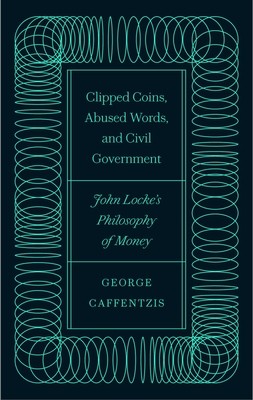
- We will send in 10–14 business days.
- Author: George Caffentzis
- Publisher: Pluto Press (UK)
- ISBN-10: 0745342051
- ISBN-13: 9780745342054
- Format: 14 x 21.6 x 1.6 cm, kieti viršeliai
- Language: English
- SAVE -10% with code: EXTRA
Clipped Coins, Abused Words, and Civil Government (e-book) (used book) | bookbook.eu
Reviews
Description
This book situates John Locke's philosophy of knowledge and his political theory within his engagement in British monetary debates of the 17th and 18th century. Anchored in extensive archival research, George Caffentzis offers the most expansive reading of Locke's economic thought to date, contextualizing it within the expansion of capitalist accumulation on a world scale and the universality of money as a medium of exchange. Updated with a new introduction by Paul Rekret, a new foreword by Harry Cleaver and new material by the author, Clipped Coins, Abused Words, and Civil Government continues to make a significant intervention in contemporary debates around the history of capitalism, colonialism and philosophy.This book situates John Locke's philosophy of knowledge and his political theory within his engagement in British monetary debates of the 17th and 18th century. Anchored in extensive archival research, George Caffentzis offers the most expansive reading of Locke's economic thought to date, contextualizing it within the expansion of capitalist accumulation on a world scale and the universality of money as a medium of exchange. Updated with a new introduction by Paul Rekret, a new foreword by Harry Cleaver and new material by the author, Clipped Coins, Abused Words, and Civil Government continues to make a significant intervention in contemporary debates around the history of capitalism, colonialism and philosophy.
EXTRA 10 % discount with code: EXTRA
The promotion ends in 21d.16:31:17
The discount code is valid when purchasing from 10 €. Discounts do not stack.
- Author: George Caffentzis
- Publisher: Pluto Press (UK)
- ISBN-10: 0745342051
- ISBN-13: 9780745342054
- Format: 14 x 21.6 x 1.6 cm, kieti viršeliai
- Language: English English
This book situates John Locke's philosophy of knowledge and his political theory within his engagement in British monetary debates of the 17th and 18th century. Anchored in extensive archival research, George Caffentzis offers the most expansive reading of Locke's economic thought to date, contextualizing it within the expansion of capitalist accumulation on a world scale and the universality of money as a medium of exchange. Updated with a new introduction by Paul Rekret, a new foreword by Harry Cleaver and new material by the author, Clipped Coins, Abused Words, and Civil Government continues to make a significant intervention in contemporary debates around the history of capitalism, colonialism and philosophy.This book situates John Locke's philosophy of knowledge and his political theory within his engagement in British monetary debates of the 17th and 18th century. Anchored in extensive archival research, George Caffentzis offers the most expansive reading of Locke's economic thought to date, contextualizing it within the expansion of capitalist accumulation on a world scale and the universality of money as a medium of exchange. Updated with a new introduction by Paul Rekret, a new foreword by Harry Cleaver and new material by the author, Clipped Coins, Abused Words, and Civil Government continues to make a significant intervention in contemporary debates around the history of capitalism, colonialism and philosophy.


Reviews